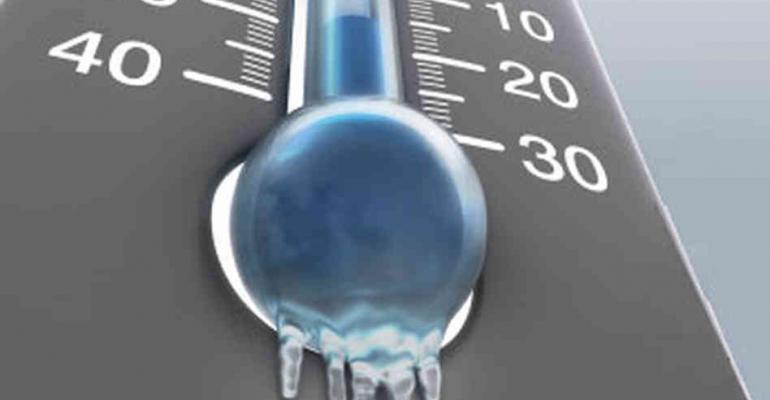Now that it’s mid-July, the height of summer, chances are your workplace’s air-conditioned temperature is so low you’re wearing multiple layers. And that’s despite the fact that many parts of the United States have yet to see a heatwave.
“Why is America so over air-conditioned?” the New York Times asked last week. Apparently, making people feel chilly in the summertime “is a sign of power and prestige,” Richard de Dear, the director of the Indoor Environmental Quality Laboratory in Sydney, Australia, told the Times—so much so that many commercial real estate brokers and building managers claim their tenants demand “chilling capacity” in their lease agreements.
In the name of cold cachet, high-end retailers like Bergdorf Goodman and Sakes Fifth Avenue tend to maintain lower temperatures in summer than do more downscale chains like Target and Walmart, according to the Times.
Meanwhile, reports the Times, offices tend to favor chillier temperatures in order to benefit those who “might wear jackets and ties no matter what the season”—in other words, men. And, let’s face it, those year-round jacket-and-tie wearers tend to include building managers themselves.
How did we get so cold? Air-conditioning’s popularity began in the 1950s, notably in the South and Southwest, according to a recent op-ed, “Our Personal Climate Changes,” in the Philadelphia Inquirer, written by George Ball, chairman of W. Atlee Burpee & Co. and past president of the American Horticultural Society: “In the air-conditioned ’50s, the word cool became the new hot.”
In the 1960s only 12 percent of Americans had air-conditioning at home, according to Time magazine. Fast-forward to today, when most of us would refuse to work in a non-air-conditioned building. But while we need heat to survive, we don’t need artificial cooling. In fact, Time points out, “a little thermal discomfort could be good for you.” As Stan Cox, senior scientist at The Land Institute in Salina, Kansas, and author of Losing Our Cool: Uncomfortable Truths About Our Air-Conditioned World, notes, “people tend to eat more and gain more weight when the temperature is perfectly cozy.” That’s because when we are a bit too warm or cold, our metabolism runs faster. Cox cites a 2014 study by Wouter van Marken Lichtenbelt of Maastricht University Medical Center in the Netherlands (published in the medical journal Trends in Endocrinology & Metabolism) that found exposure to cold temps—enough to make you shiver—“may increase your body’s stores of healthy, energy-burning brown fat.”
Mark Mendell, a California Department of Public Health epidemiologist, notes in Time that during the 1970s we started seeing “sick building syndrome,” in which microorganisms breeding in an air-conditioning system cause worsening asthma problems, allergies, nasal congestion, headaches, fatigue and skin irritations as well as spread diseases.
But air-conditioning systems also protect health. Last week, in a report on Environment Canada’s ranking Metropolitan Vancouver’s Air Quality Health Index at a 10+ or “Very High Risk,” the Canadian website GlobalNews.ca noted: “Staying indoors and in air-conditioned spaces helps to reduce fine particulate exposure.”
Cox notes that the human body can adapt to a range of temperatures, “So if you can cut out the heat or cold for a week or two, your body will often acclimate to temperatures you found unpleasant at first—and easing up a bit on the AC will make the planet thank you, too.”
But for Burpee, it’s not that simple: “To one unnaturally cooled, nature feels unnaturally hot.”
He believes that people who are victims of so-called “Personal Climate Change,” a condition “effected by refrigerated environments, intensified by thin, weightless, sleeveless clothing and hatless heads”—in other words, all of us—should be predisposed “to warm to the concern about global warming. It feels true.”
And yet, Burpee says he wonders “if our profoundly altered personal climates have made us the climate change we believe in. Personal Climate Change, a theory rich in parsimony, does not solve Global Warming. Yet, it just might enlarge our understanding—if only to a degree.”

